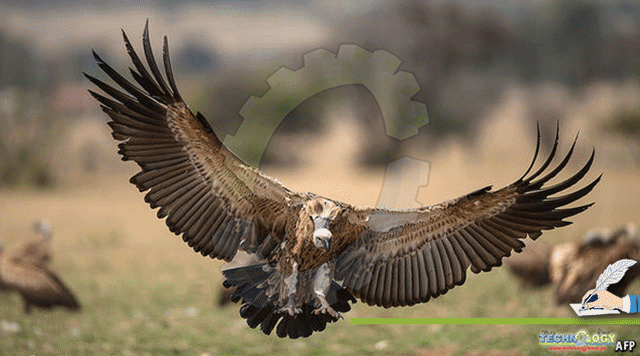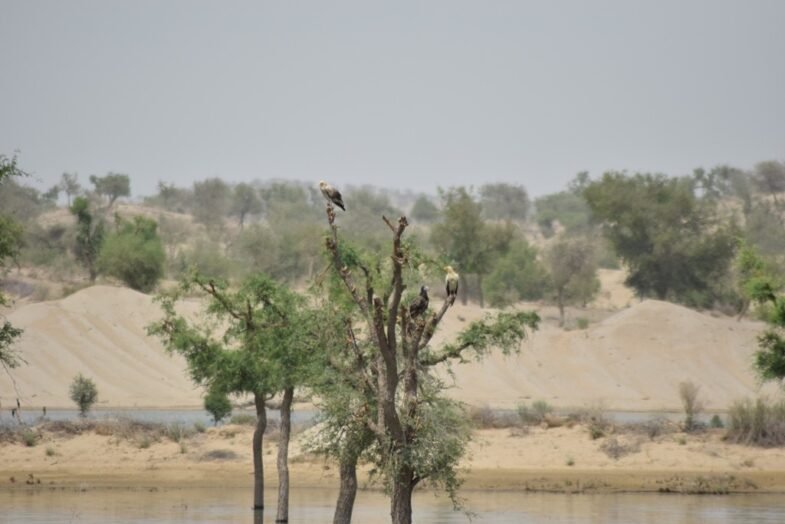Nature is all about biodiversity which must sustain, or alterations will bring nothing but drastic changes that ultimately will de-shape the planet in terms of resources and this will into paying the price or perish forever.

By Prof. Dr Abdullah Arijo
Regarding data on extension of animal species, highly surprising information is Surfaced by world-known Journal National Geographic which reveals that the truth is, scientists, don’t know how many species of plants, animals, fungi, and bacteria exist on Earth. The most recent estimate put that number at 2 billion, and that will most likely change at some point.
Extinction happens when environmental factors or evolutionary problems cause a species to die out. The disappearance of species from Earth is ongoing, and rates have varied over time. A quarter of mammals is at risk of extinction, according to IUCN Red List estimates. To some extent, extinction is natural. Changes to habitats and poor reproductive trends are among the factors that can make a species’ death rate higher than its birth rate for long enough that eventually, none are left.
Humans also cause other species to become extinct by hunting, overharvesting, introducing invasive species to the wild, polluting, and changing wetlands and forests to croplands and urban areas. Even the rapid growth of the human population is causing extinction by ruining natural habitats, the journal further concludes.
It is believed that in the last 50 years nearly 60% of animal species have gone extinct or they are at the verge of extinction. According to rough estimates, the natural world holds about 8.7 million species, but the taxonomy of the vast majority is un-identified and cataloguing them all could take more than 1,000 years.
Vultures grip great ecological important and authorities at WWF have been working to save the vultures of Pakistan through various interventions, projects and collaborations. Both in ex-situ and in-situ conservations of vultures are on plate; including efforts to embark up on captive breeding and establishment of Vulture Safe Zones, both of which help in saving vultures from extinction and ensuring their long-term survival.
Vulture is a gift of nature. It’s their scavenging lifestyle that means the importance of vultures is often overlooked, but they are vital for the healthy functioning of ecosystems, in many cases keeping them free of contagious diseases. Vultures have an extremely corrosive stomach acid that allows them to consume rotting animal corpses.
Vultures hold great ecological importance and teams at WWF have been working to save the vultures of Pakistan through various interventions, projects and collaborations. They are involved in ex-situ and in-situ conservations of vultures; and their efforts include captive breeding and establishment of Vulture Safe Zones, both of which help in saving vultures from extinction and ensuring their long-term survival.
In 2013 an elephant carcass found in Namibia, Africa, was surrounded by as many as 600 dead vultures. Vultures are also endangered as a result of the demand for their body parts for use in traditional medicine in certain parts of Africa. And rapid urbanization has disrupted vultures’ natural habitats.
The species was undergoing a slow decline until their population collapsed. In just 20 years, a species numbering in the hundreds of thousands is now close to extinction with fewer than 10,000 individuals estimated to be left in the wild.
In the 1990s, 99% of the Indian subcontinent’s vultures were wiped out using the veterinary drug, diclofenac, given to cattle but lethal to vultures feeding on their carcasses. Birdlife helped push for a ban of veterinary diclofenac in India, Nepal, Pakistan and Bangladesh, allowing for populations to slowly stabilize, but they are still nowhere near what they once were. However, we are turning things around through the work of the SAVE partnership, through education, protection, captive breeding, advocacy and legislation.

One major factor responsible behind the decline in vulture population is the indiscriminate use of diclofenac a veterinary non-steroidal anti-inflammatory drug which was authorized for veterinary use in Europe in 2014.
This drug is used in cattle, and its residues remain active even after cattle are dead. When vultures consume carcass of the dead cow, the Diclofenac shows toxic effects on vultures even in small doses, causing kidney failure. That results in uric acid accumulating in the birds’ blood and crystallizing around their internal organs, a condition called visceral gout. Hence Diclofenac is blamed for driving vultures to the brink of extinction on the Indian subcontinent could cause thousands of bird deaths now that it is being used in Spain.
Widespread use of diclofenac in south Asian cattle is linked to the deaths of millions of vultures that ate carcasses containing the drug, causing some populations to decline by more than 99% since the 1990s. Although diclofenac does not yet seem to have caused population declines for Europe’s vultures, scientists suspect that it might only be a matter of time.
Reportedly, in Europe, diclofenac has been approved for veterinary use since 1993. In 2014, the European Medicines Agency acknowledged that vultures are at risk of consuming residues of the drug in dead livestock, but did not recommend banning it. In 2015 the European Commission decided to follow the EMA’s recommendation, leaving it up to EU member states to prevent diclofenac-laced carcasses from entering the food chain.
Diclofenac is a common anti-inflammatory drug administered to livestock and is used to treat the symptoms of inflammation, fevers and/or pain associated with disease or wounds. It was widely used in India beginning in the 1990s. However, because of an overdose of diclofenac can cause kidney damage in humans, the drug seemed to be a likely cause of death in the vultures. Further tests established that there were residues of diclofenac in dead vultures, therefore this drug must be banned and steps must be takes for the conservation and restoration of this precious species all over the world including Pakistan.
In this regard WWF must be appreciated for the efforts of their in-situ conservation is in collaboration with federal and provincial government departments, which helps in integrating research, monitoring, advocacy, capacity building and training, community empowerment and awareness to ensure a viable population of vulture remains in the wild.

THARPARKAR A VULTURE SAFE ZONE IN PAKISTAN
Thar identified as the Vulture Safe Zone in Pakistan. however the establishment of Vulture Safe Zones is also a practical approach with objectives to completely eradicate Diclofenac Sodium and other harmful NSAIDs, that are major threats to vultures, and to enhance availability and usage of the alternate drug Meloxicam through lobbying with pharmaceuticals, veterinarians, relevant government departments and communities. This is satisfying to know that WWF has also established Vulture Safe Zones in Nagar Parkar, in Sindh and Mirpur, Kotli, Sudnoti, Muzaddarabad Hattian and Havelian in Azad Jammu and Kashmir (AJ&K).
Pakistan wildlife department must take practical steps to save the endangered species including vaulters far they play role in ecological nitch. There is need to establish breeding safe sites for vultures and take them out of status of endangered species.
Author : Prof. Dr Abdullah Arijo Chairman Department of Parasitology Sindh Agriculture University Tandojam